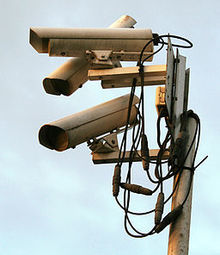Environment
On the Nature of Privacy
There is more to privacy than simply shutting others out.
Posted May 8, 2019

Lately, privacy has been very much in the news. From the recurring gaffes by Social Media giants such as Facebook that threaten all of us to the sharing of emails and other sensitive information by organizations such as Wikileaks that can derail political careers, there has perhaps never been a time when humans have worried about privacy in so many different ways.
But how many different kinds of privacy are there?
Types of Privacy
Recent discussions of this issue identify as many as seven different arenas of privacy concern, but Alan Westin, in his influential book Privacy and Freedom, identified four different states of privacy that individuals must regulate at one time or another, and these have become the traditional ways in which social scientists think about privacy.
- Solitude refers to the commonplace notion of privacy – the opportunity to separate oneself from others and be free from observation. However, other forms of privacy are also quite important.
- Intimacy is the freedom to be alone with others such as friends, spouses, or lovers without interference from unwanted others.
- Anonymity describes the freedom to be in public but still be free from identification or surveillance by others. Anonymity is the type of privacy that public figures such as movie stars, politicians, and professional athletes find difficult to achieve when they simply want to go out to dinner with their families or take a walk in the park.
- A fourth type of privacy, Reserve, occurs when the individual’s need to limit communication about himself or herself is protected by the cooperation of those around them.
The insidious thing about the privacy threat posed by Facebook and other forms of big data is that you may not even be aware that your privacy has been violated -- and Big Data threatens all four kinds of privacy. One can never be sure that you are anonymous and away from the prying eyes of others (Solitude & Anonymity), you may be inadvertently revealing personal information that you wish was private (Reserve), and you can have no real assurance that your communication with other people who are important to you will remain confidential (Intimacy).

The Functions of Privacy
Privacy is commonly thought of as simply being away from other people, but it is actually a process by which we control the access that others have to our selves or our groups. Privacy helps us to manage our social interactions by maintaining order and avoiding conflict; consequently, privacy is not just about shutting other people out. Rather, we should think of it as a “boundary control process” through which we control whom we interact with, how we interact with them, and when and where these interactions occur.
Maintaining some degree of control over interactions with other people is crucial to our psychological well-being, and insufficient opportunities for privacy have been linked to antisocial behavior in a variety of settings, including prisons and naval ships.
There are many different mechanisms we can employ to regulate privacy. We can of course manipulate doors, windows, and other architectural props to achieve the level of solitude that we desire, but we may rely primarily on nonverbal communication to regulate reserve. Social customs, such as not calling people late at night or showing up unannounced at their front door, assist us in managing our interpersonal boundaries and regulating privacy of all sorts.
Societies vary tremendously in the degree of privacy that they allow and in their assumptions about the amount of privacy that individuals need. For example, in Germany, visual and auditory privacy is extremely important, and office doors are rarely left open as they are in the United States. In more “Mediterranean” cultures, on the other hand, there is little visual or auditory privacy in public, and eye and body contact with strangers is frequent. Having said this, even in societies that appear to allow very little opportunity for individual privacy, there are social conventions that permit individuals to control access to themselves in some way.
In summary, privacy regulation is necessary for intimate communication with others and it allows us to maintain a sense of control, autonomy, self-identity, and well being in our lives. It also allows for an emotional release that might be inappropriate under other circumstances.


